We leave Vilcabamba with mixed emotions. One reason is because I do not look forward to camp in lousy abandoned structures where wetness reigns. Camping right along the main road in rainy season in a rain forest is just not that very desirable.



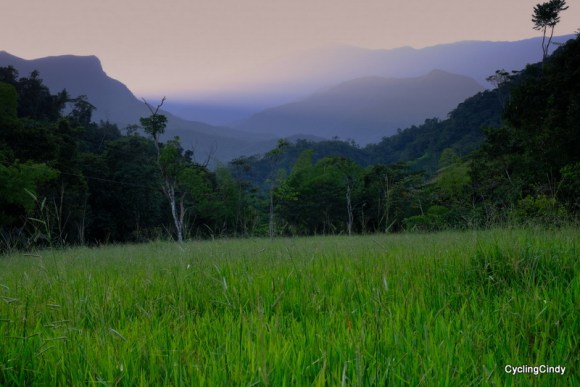

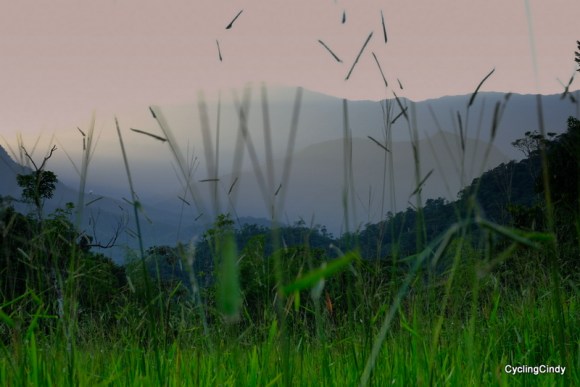

To make matters worse, we end up at the highest point of our first leg towards the high Andes of Ecuador, at 2600 meters, a bit after Loja. Our camp spot is not at one of the many ‘night clubs’ but not much better than that. In these regions one really wants a few walls and a roof above its head. The weather in February is cold, and uninviting, clouds cover all there is to see and the uncountable many hills are covered in such a thick lush vegetation that placing a tent is impossible. As far as the eye can see is nature, and we end up in an abandoned, small factory hall.

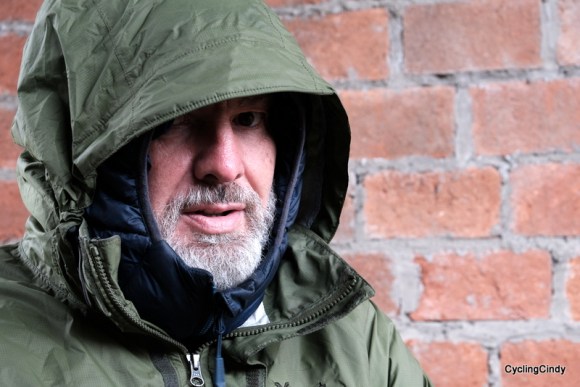
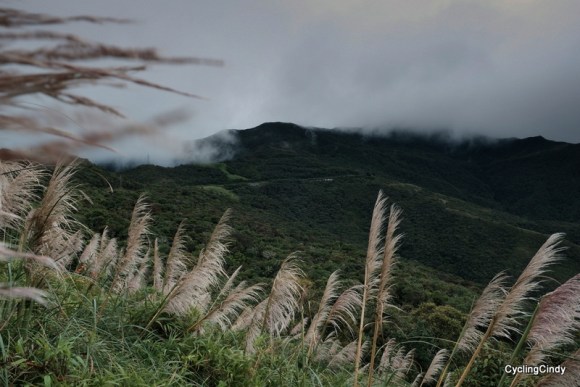



The first thing Geo speaks out, after he sees my expression, is: ‘I am so done with this sort of lifestyle’. The fact is, though camping in abandoned buildings has become one of my favorite places to erect a tent, I am done with being so close to a magical jungle yet not being able to enjoy it. Ecuador should not become a drag, a continuation of the Peruvian experience. ‘We can book something cheap and stay there for the remaining time,’ I opt.


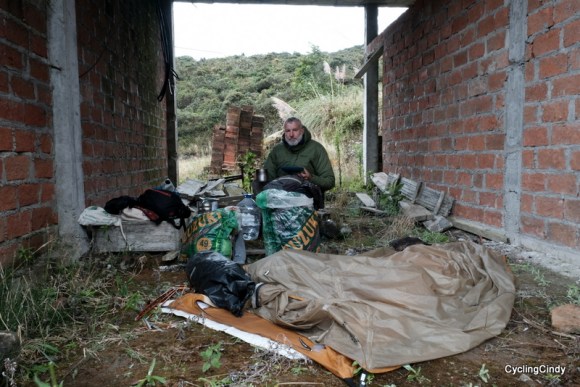

Without breakfast we leave the wet and cold road-side building. We drive to Zamora where my mood has reached a low, unable to find firm bread without sugar nor something else than rice and beans. I am tired of searching for breakfast and impatiently choose to just get ‘in there’, a nondescript restaurant.
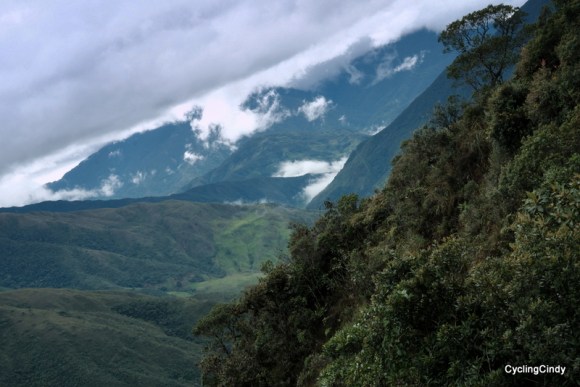
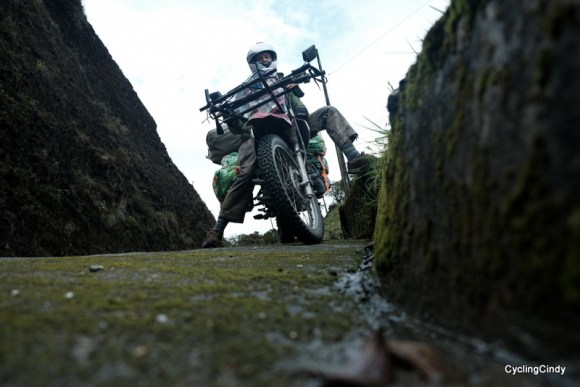
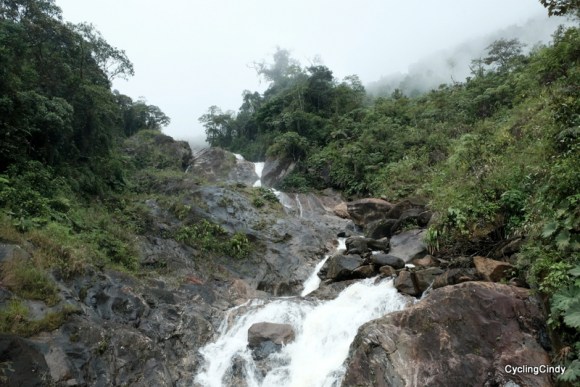
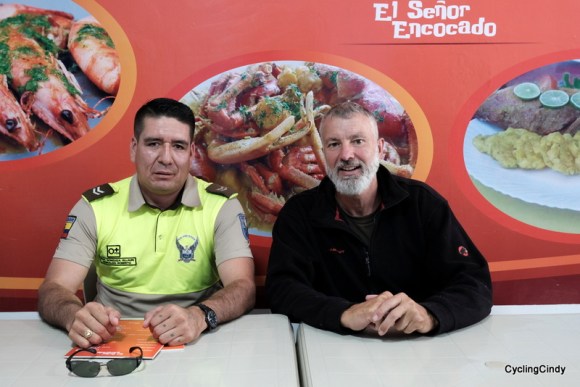
Suddenly, from this moment on, everything goes in my favor. Well, except for one minor mistake of an automobilist behind us. He didn’t see us making a turn and shave past us, the sound of hitting metal, the smell of rubber! I see us crashing down the road, a long slide over tarmac where both Geo and I are catapulted off the Kenton. In my minds eye I see the end, with all complications following.


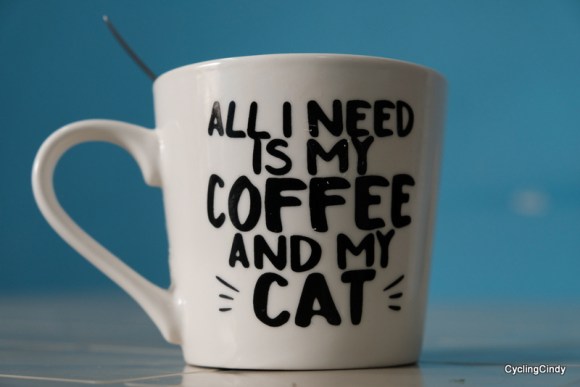
A guy had pointed us in the wrong direction, we drove 80 kilometer in vain and when Geo made a turn to go back the way we came, we were hit. But barely. Thank God we were saved! But of course, at this point I am TOTALLY DONE WITH MOTORBIKE RIDING. It just makes no sense to ride over tarmac, between fences where a jungle spreads out into seemingly eternity yet unreachable for us. It makes no sense to sit on a motorbike and do nothing but go from camp to camp, often one more shabby than the next.


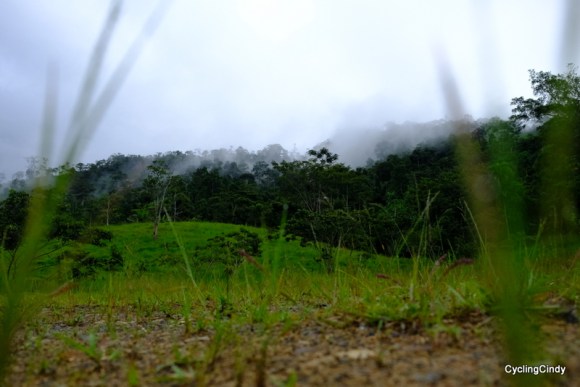
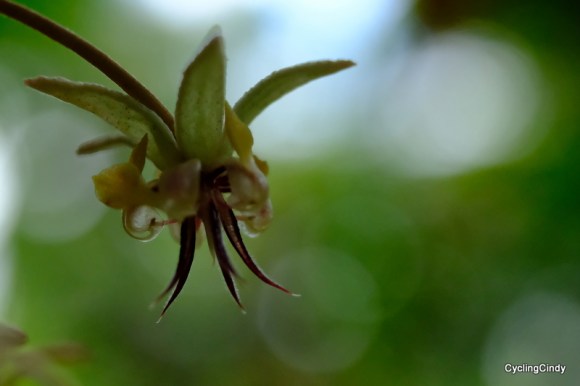


And, then finally, from now on it really goes all in my favor. We end up at an Airbnb campo. A little cottage far off the main road, in a tiny village wedged between uncountable many hills, covered in lushness, without one single disturbing structure. Call it authentic. Call it untouched. I think it is as local as it can get.
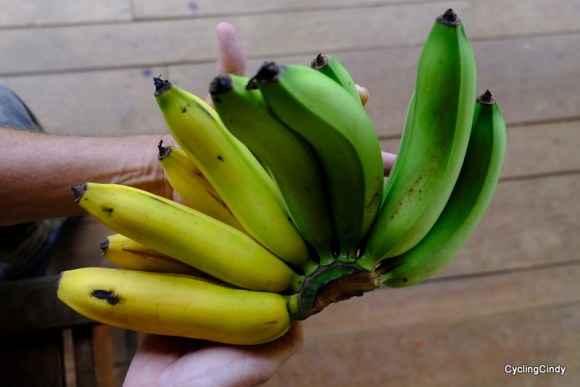


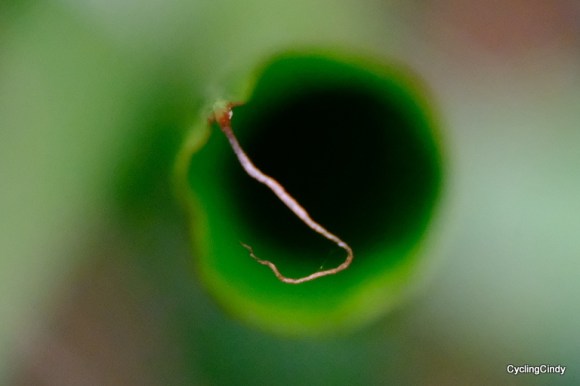
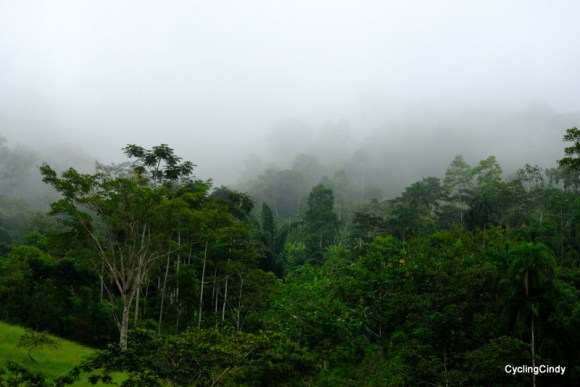

As soon as we get instructions from Angelita (little angel), we meet with her husband Arthur who is waiting for us at the little cottage where we pay only $6 per night. The whole setting is so enchanting, that I call out to Geo: ‘Wow! This is incredible! This is perfect!’ In fact, this is what I was longing for all the time while being in the Selva, jungle of Peru and Ecuador. Riding a motorbike made perfect sense to me at the altiplano but here, it has lost its benefits.




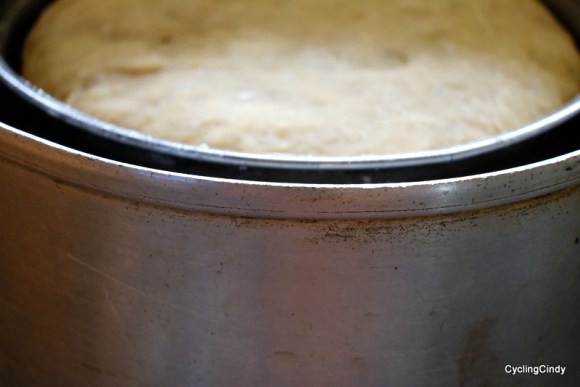
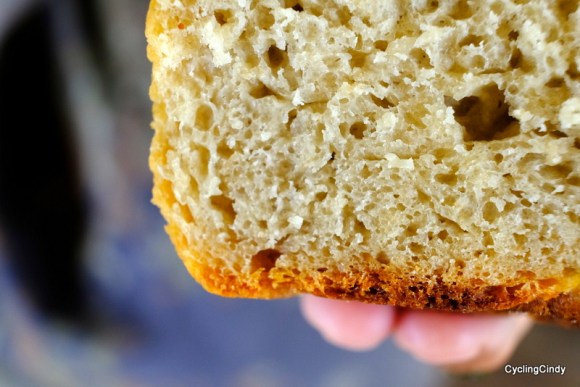
A cottage to ourselves, an own kitchen and a jungle as backyard. We are surrounded by hills. One after another, as far as the eye reaches. When we go out for walks, the scenery is always incredibly beautiful, reminding me of scene from a tale. The best of all, it is an unspoiled nature. There are no houses shimmering in the sunlight because of ,the bathroom tiles reflect so hard.
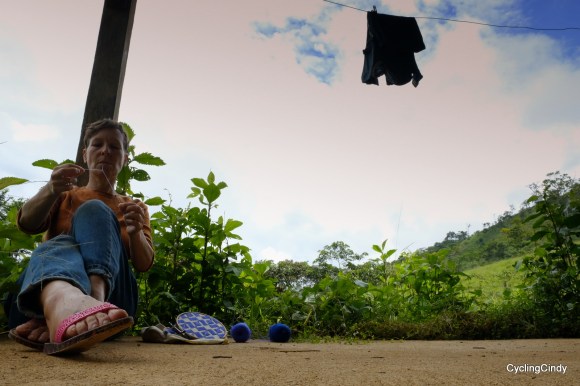


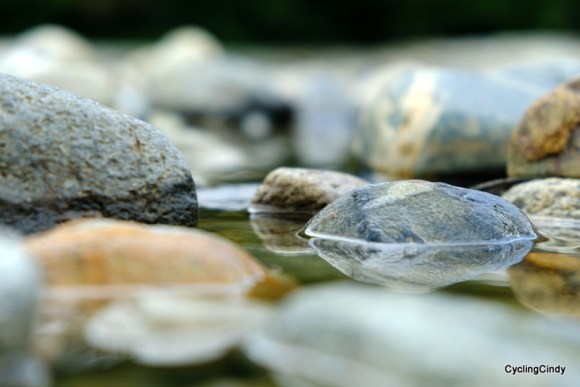


The people are calm, smiling, greeting and so tranquil that we feel at home immediately. Children behave immaculate, greeting accordingly to the time of the day.

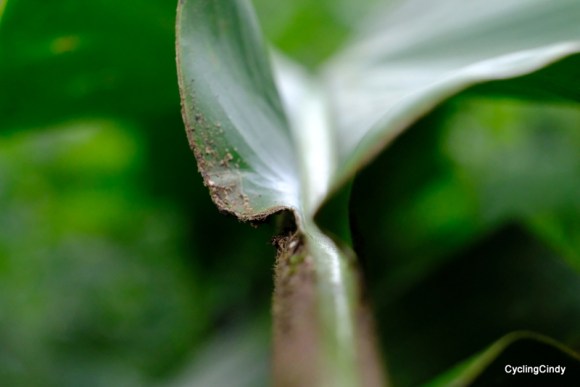
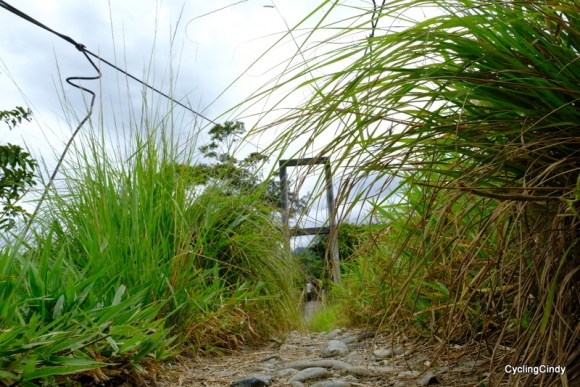

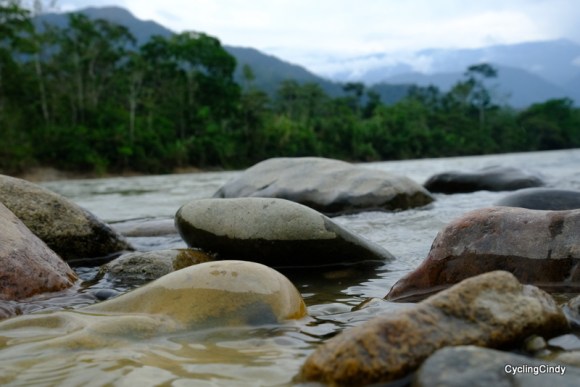


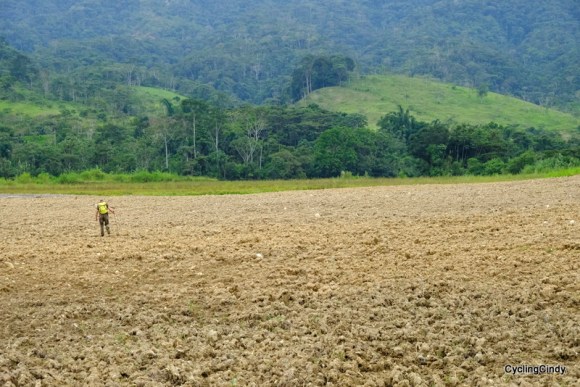
On my way to Ecuador I came to a profound understanding.

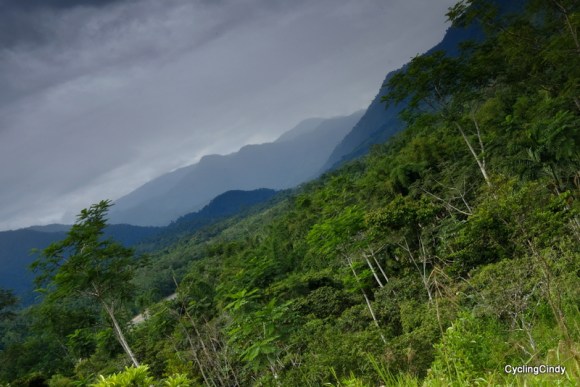



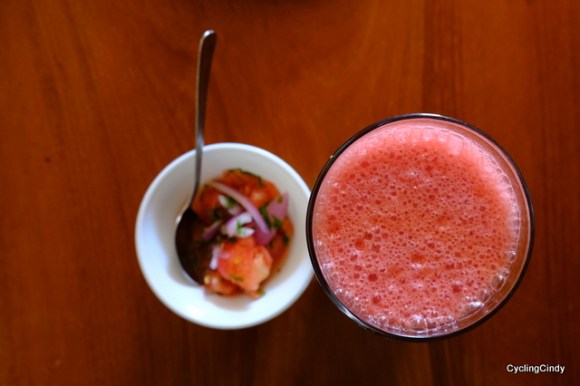
Interpretation of Authenticity
—— My writing is always based on my feelings, and usual not objective. I often write straight from my diary, which comes directly from the heart. Often that is after a tiresome day, at the end of sitting on a motorbike, being weary and cooked. When a tiresome day has been along openness, endless plains where beauty slapped you in the face, then my diary notes are accordingly. Now, on the asphalt, with traffic and houses alongside, mood is subject to change. Big change. Though the nature is besotting beautiful, impassable, lush. The route is still narrow, just as in the jungle of Northern Peru. And with that, there is again no possibility to camp. Given that camping in the rain forest of the rainy season would be practical.

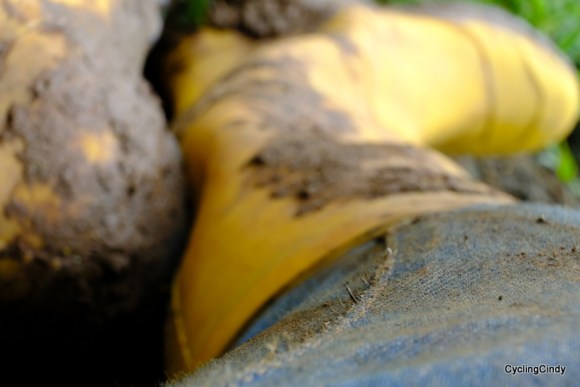
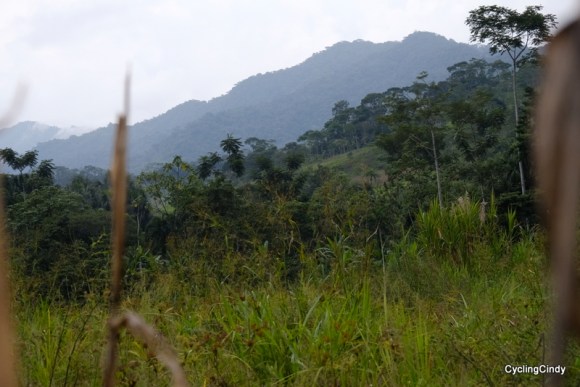
—— Nature here is as beautiful as it is in Patagonia, but this sort of nature is imprisoning me. I can literally not go far from the road. The feeling of sticking to the edge overtakes me, skimping against the Amazon. Handmade paintings on the buildings in Zamora make this feeling even stronger, indigenous Indians with feathers, painted faces and other sort of clothing than the usual leggings. The feeling of bobbing on the surface envelops me, never being able to perforate where we are. We stay there where the locals have chosen to go, the way forward. Away from old habits, towards the example of North America.
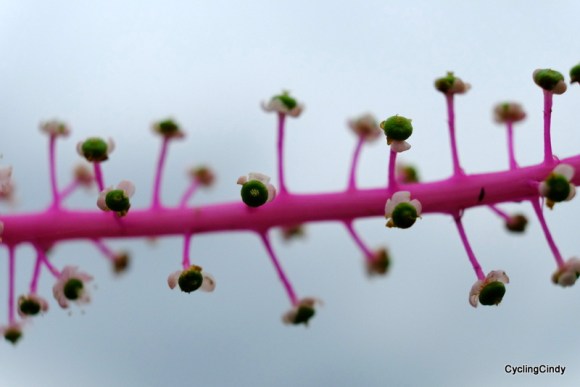


—— My ideas about living in the jungle might be hopelessly outdated? Maybe I am the one who has come to a standstill? As if I would dress in twigs, feathers and leaves when there is also something fantastic stretchy as Lycra? As Geo says to me: ‘It does not mean that the materials being present are the best to built a house.’ Where before people used mud, they now rather choose bricks and concrete. Because the possibility has arrived. Bottles with propane have overtaken wood to cook on. Because propane is handier and the existence has arrived. For the same reason there are cars and trucks and people did away with a horse cart. Jeeps instead of riksja’s. Instant over effort.
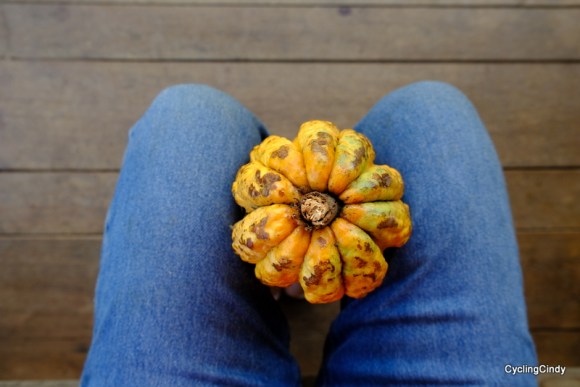
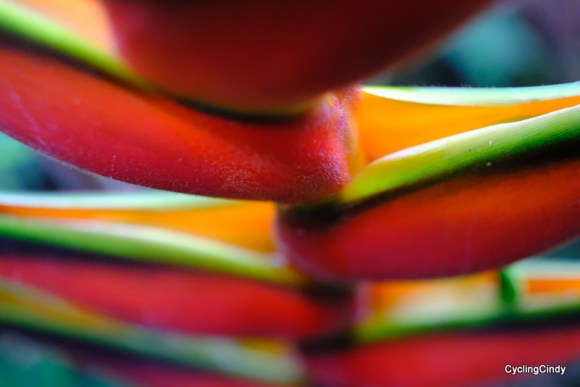

—— To avoid these disappointments, someone like me, should stay in a sort of nature where is no visible development -only hamlets such as in Argentinean Patagonia– or very modern countries where the desires of a better lifestyle are already lived. So that someone like me can not be disappointed. Or, to fled from the habited world, where people love to make life easier and more plentiful, to where it is still pastoral for someone like me. The altiplano is such a place. Sana’a 15 years ago too. Damascus had it as well, long ago. Probably it is a sign of getting older. To be somewhere where you were when you were young, where the balance between how you grew up and where you were, was very uneven. This balance makes a rapid catch-up race for the last 20 years. Maybe traveling only becomes more difficult for a traveller, because measurements are made with two different sizes. Someone like me measures with an old tool, longing more passionately to authenticity while the once authenticity makes moves forward, toward where you come from. Kalash had it. Kabul had it. Khartoum had it.

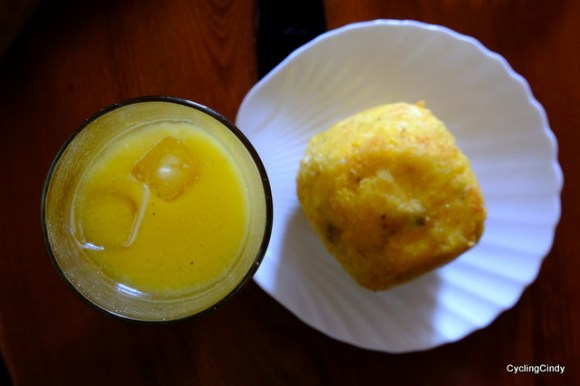
—— Would I be alone, deserts, highlands and war zones would remain. Because there the balance is all-right to my old fashioned measurement tool. The balance of how life was long ago. Back in time. Probably that was why I was always drawn to the Middle East and Pakistan and Northern India. Countries where the government benefits from not copying the West. Therefor the person like me kept the very unbalanced balance in balance. Getting older means calming down. Nature came in the picture. Never being interested in jungle and tropical matters, someone like me ended up in deserts, highlands and the Himalaya. Or Andes and the pampas. Or difficult places without seeing much, like the Chaco in Paraguay. I was interested in the Mennonite communities, because their lifestyle seemed more in balance to someone like me. Someone who rather stands still, or in other words, subtle living.

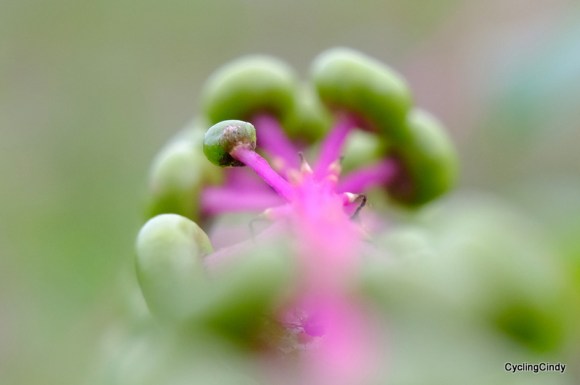
—— Because of where I was born, in a fortunate country with modern, loving parents I had the chance to stand still, to choose one over another. Someone like me has the chance to move the position of the indicator. Not forward, but back a bit. And that is only possible when one steps out of the progression: when you have that choice, when you see such chance. One must want it.
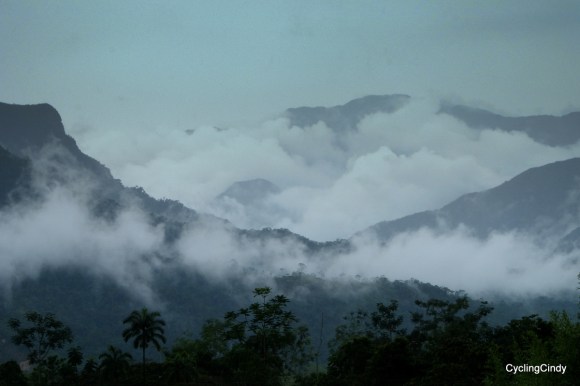


Thoughts like these, on the porch of our Airbnb cottage, when the mornings are crisp, cool and refreshing.
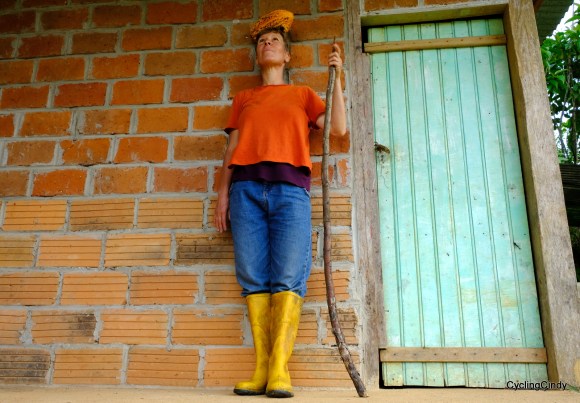
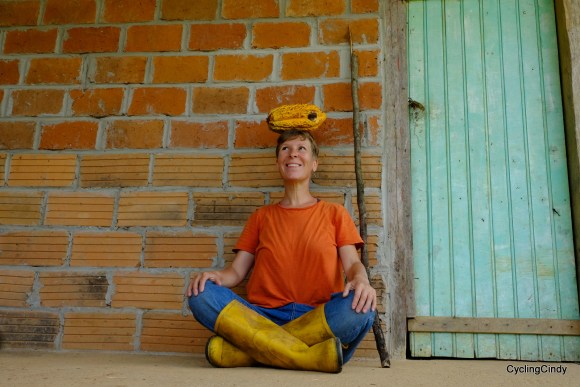
After that, I explore every notch around the campo.
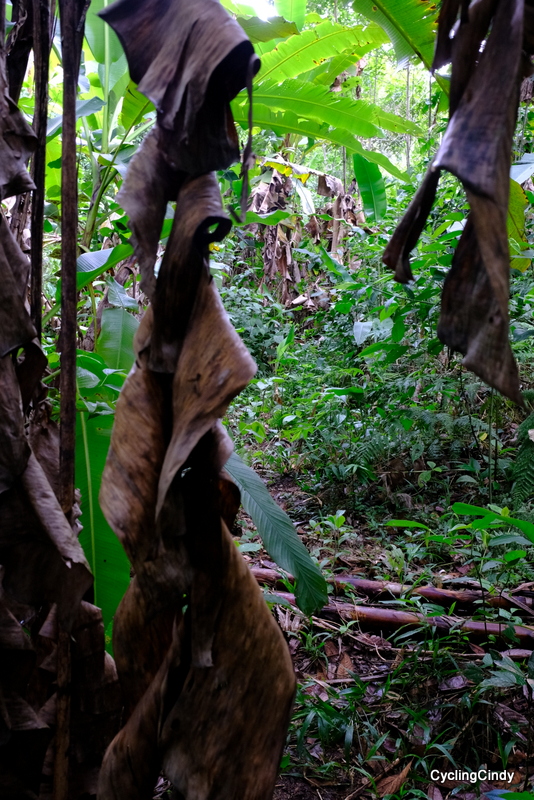
The hosts parents are welcoming and loving. Arthur takes us to his patch of land where he grows two kind of cacao, bananas, papaya and sugar cane. ‘I am not interested in money, I have enough,’ says 73 years old Arthur while he is aware that under his feet might be a stash of gold. Like the neighboring patch of land, digging 15 meter deep, leaving a mess out of the earth.


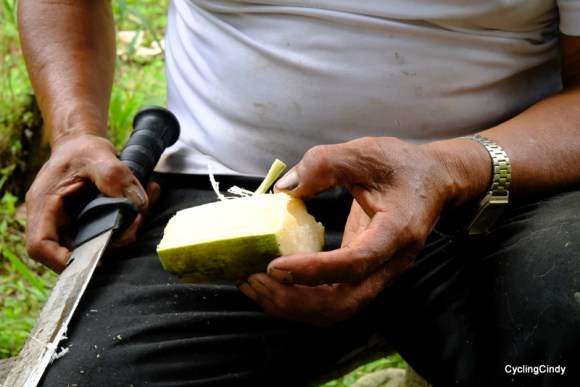

We are presented a lot of cacao beans, also with a fresh cacao fruit and dried, roasted and grinded cacao beans. So much so that we had to give most of it back, as we are not able to carry it along. Now nature touches me again, interesting to split open the fruit, lick the white sweet glib outer-layer and leave them to sun dry.
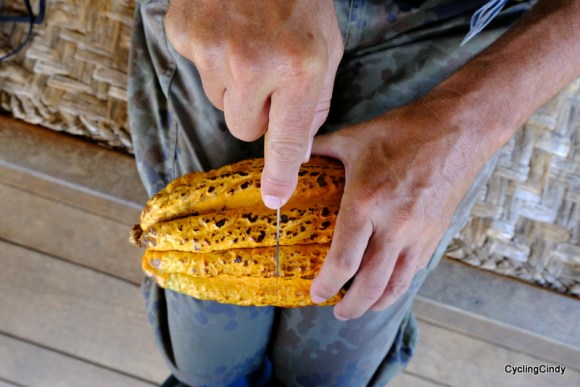
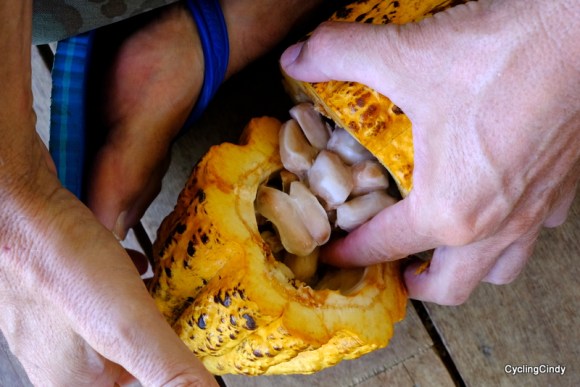
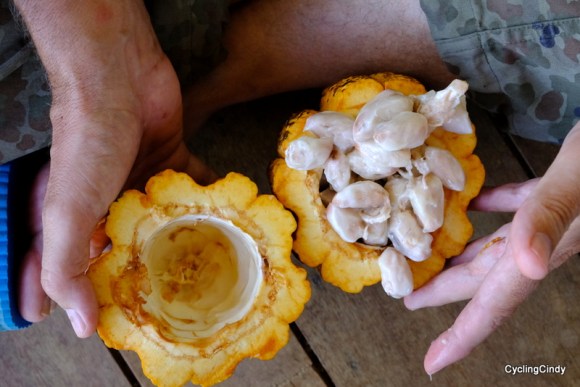


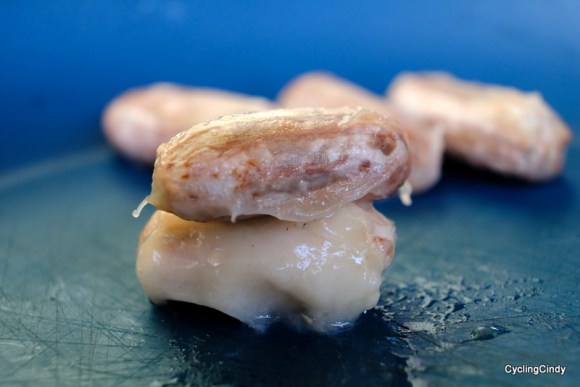
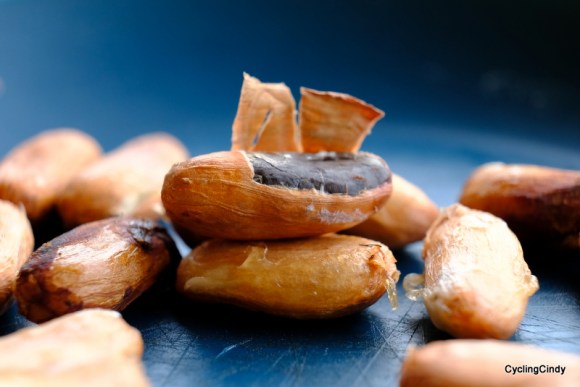
Ecuadorians get paid $0.75 for delivering a kilo of cacoa beans. In the West we pay $20 for a kilo raw organic cacao. Clearly, the Ecuadorian farmer impossibly gets better from planting and harvesting the beans. I don’t even believe in organic farming, or slave free farming as such… call me a pessimist if you like but, again, the balance is incorrect.
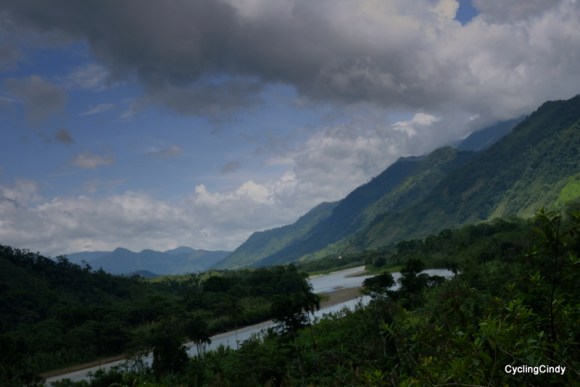
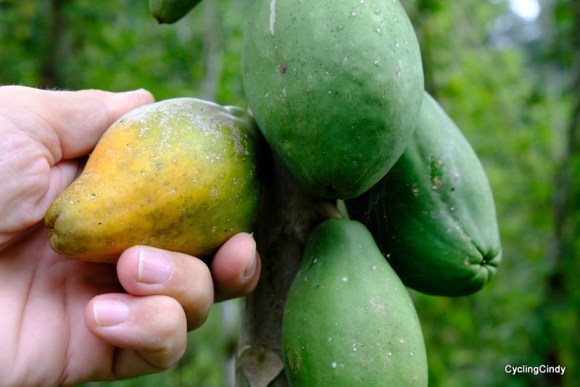




The pace of life in Piuntza is palpable tranquil. A small village of a few hundred inhabitants, where the main occupation is at a tilapia farm, as we are told. Most inhabitants must have a patch of land as almost everyone walks in rubber boots. The steep ascending green hills have nearly invisible plots of agriculture. And nearly every man works, including these guys.

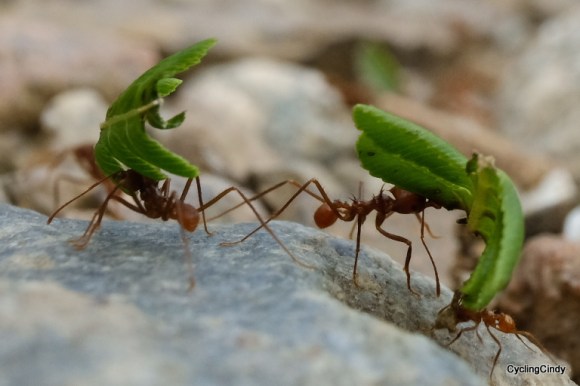

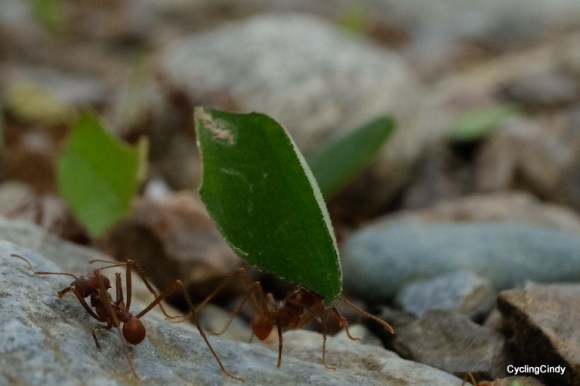
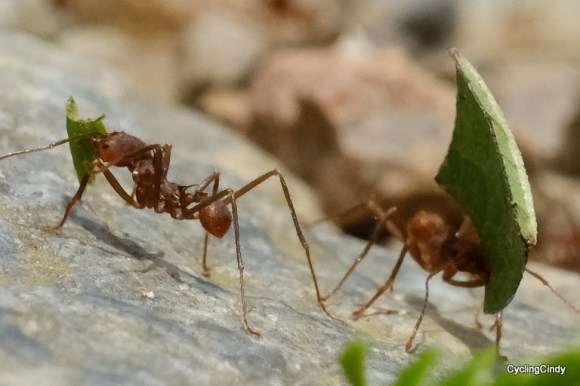
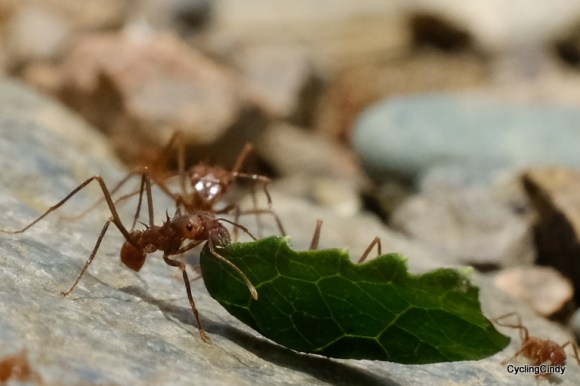
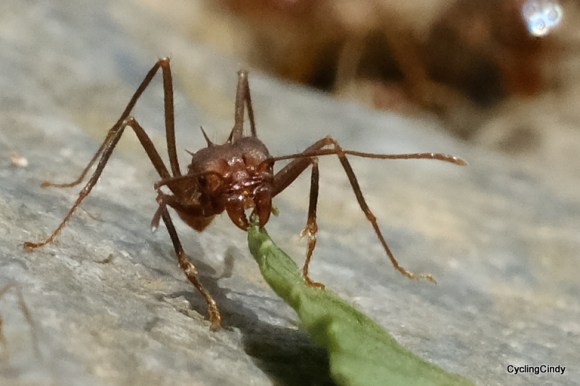
I use the cacao and banana which were given to us in home-made goodies.

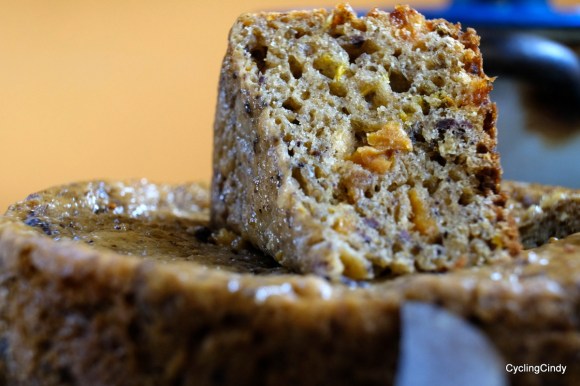
When traversing from cabana to the separate building where the toilet and shower are built, the smells are at times heavy, deciding to lay quiet in front of me, sharp as jasmine can be.
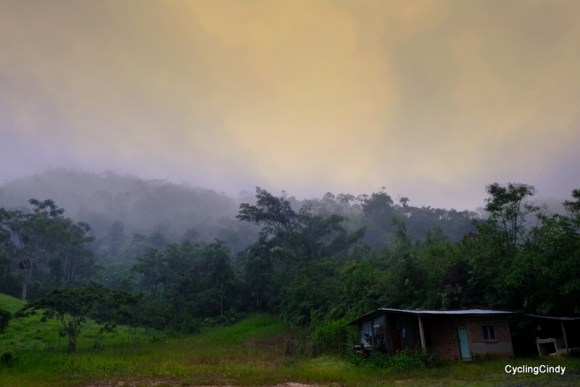
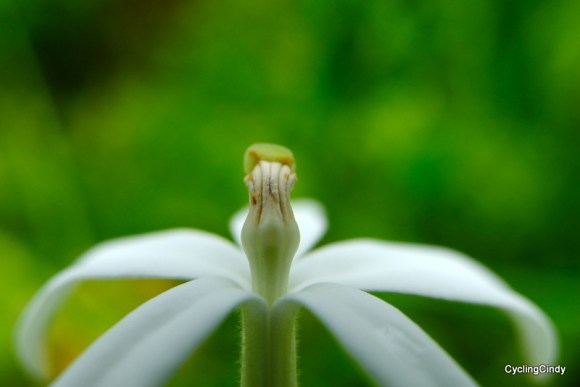
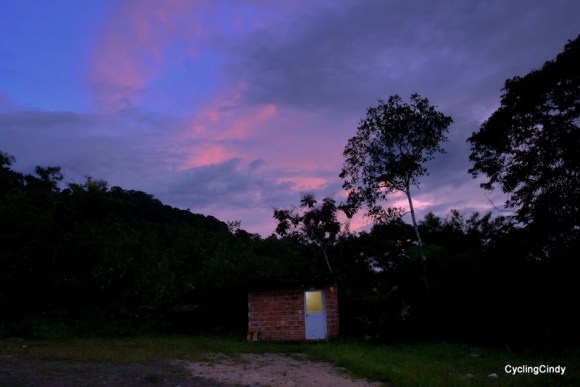
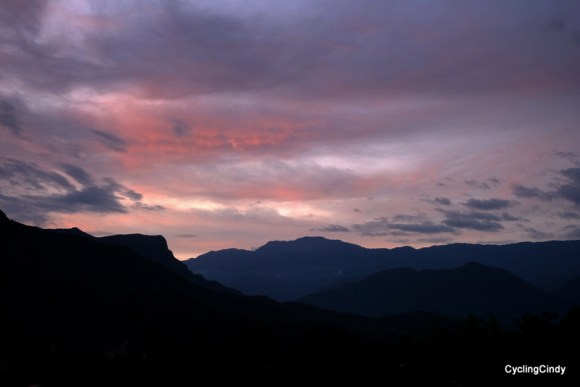
The rain seems of a kinder sort out here. Warm enough. Falling softly. To be in a campo, though the house has wide open gaps, is safe from rain. Now, suddenly, rain can be romantic.

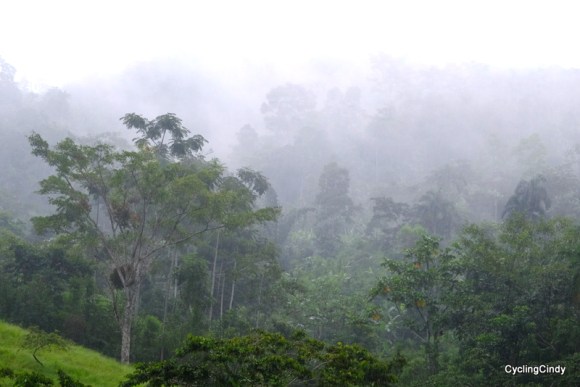
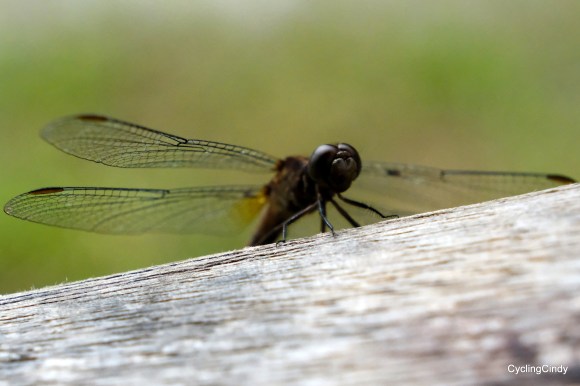

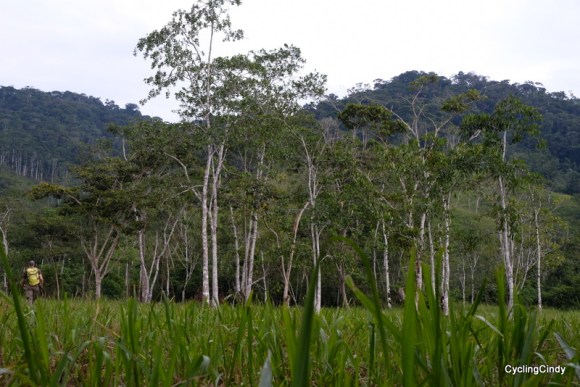
The sounds around the few houses, houses as simple as a jungle requires, are not often loud. The only thing we hear are screaming pigs, cocks, a child now and then and sometimes, when we are less fortunate, the bass tones of music.
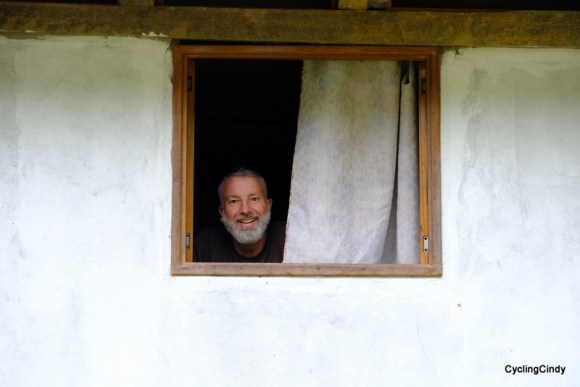




To witness culture, to see how jungle folks still keep their inheritance, one needs to get deeper into the jungle. Via dead-end tracks or by river travel and we don’t want that.


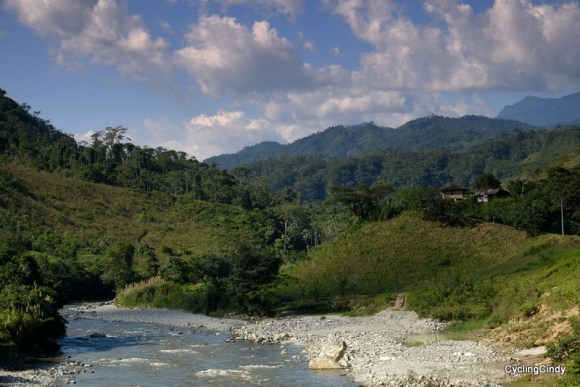
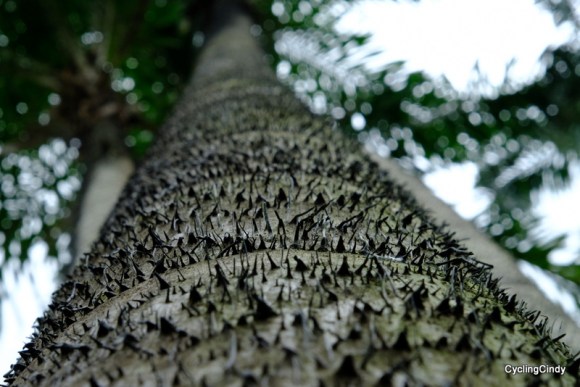
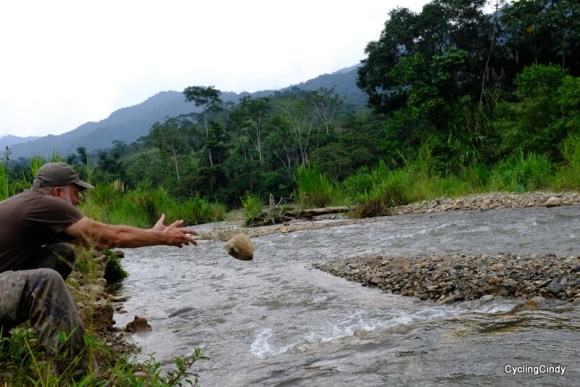
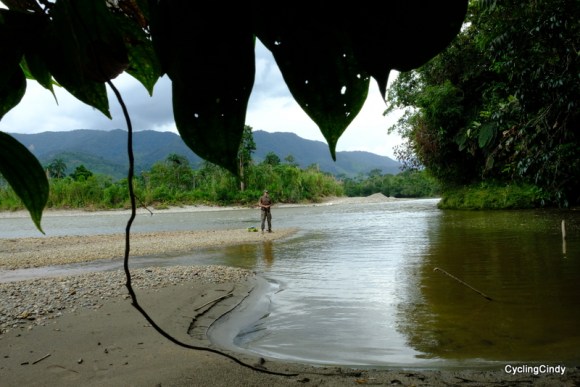
I rather not explore by motorbike, instead we walk a lot. On one of our walks we have lunch in a small restaurant. Here, to see youth after school-hours with long wavy black hair in a ponytail or braid is lushness. The only one testimony to Indian culture which I find so immensely beautiful. Someone who does not need to be ‘Americanized is pure hearted to me’.
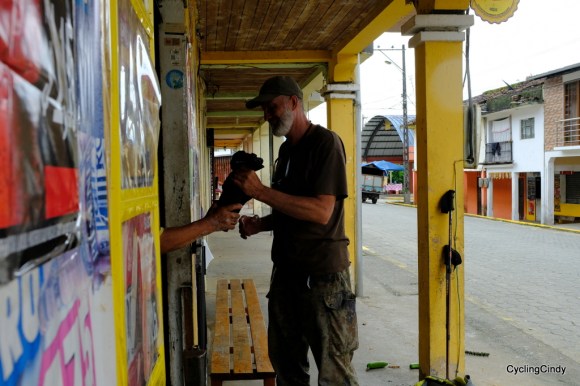
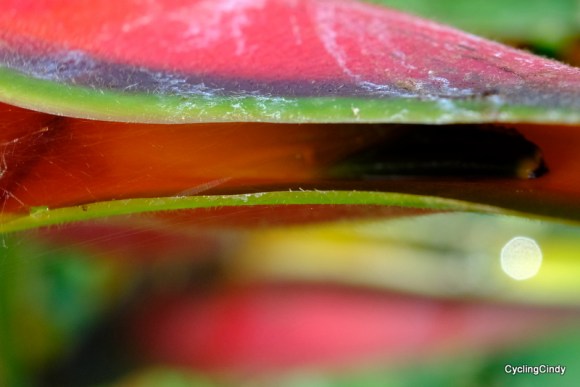

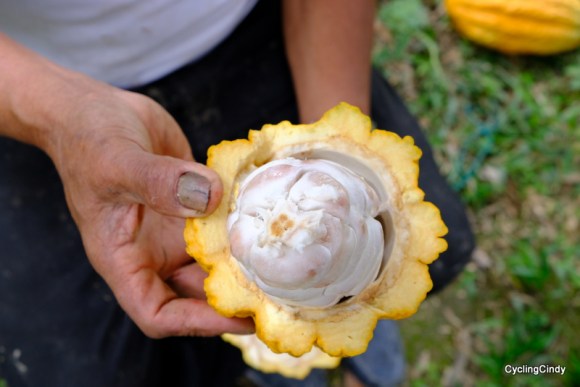
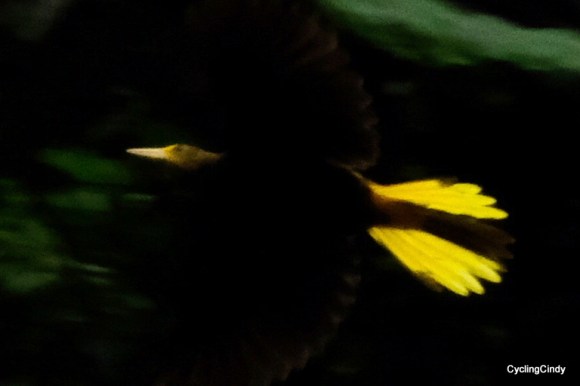
Of course, it is myself who is to be blamed for cultural disappointments. I expect from South America that it is still like it was 15 years ago, when I came here first. Indigenous Indians with handwoven natural clothing. As if I would wear wooden shoes and a long dark blue skirt with a white rimmed lacy hem. Coming here, I wanted to see hats with broad rims, trousers held up by sturdy leather belts, women wrapped in ankle long skirts. Though I know very well that working the fields in a legging is easier than an ankle long skirt.


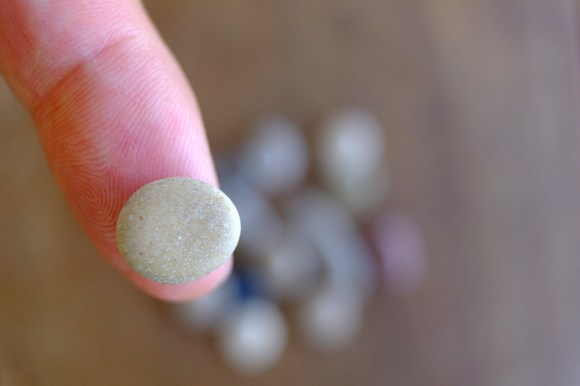

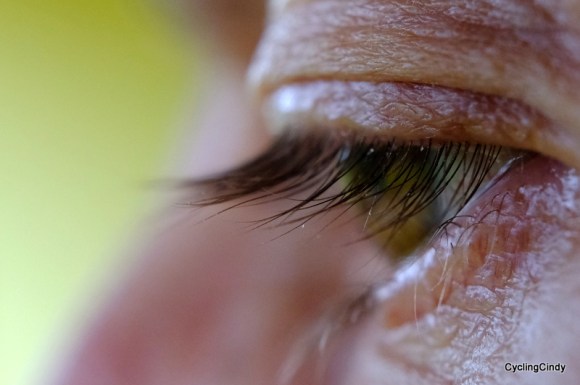
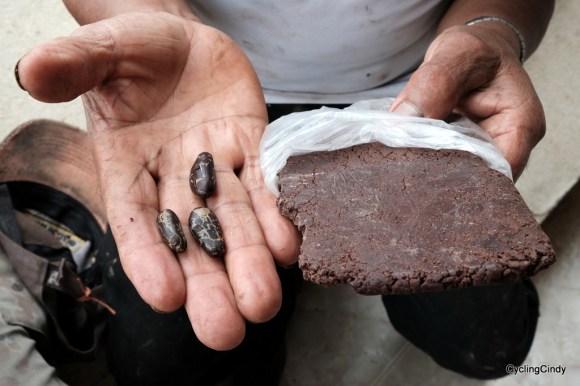
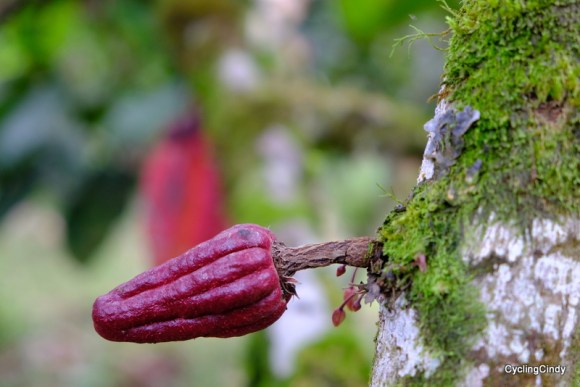
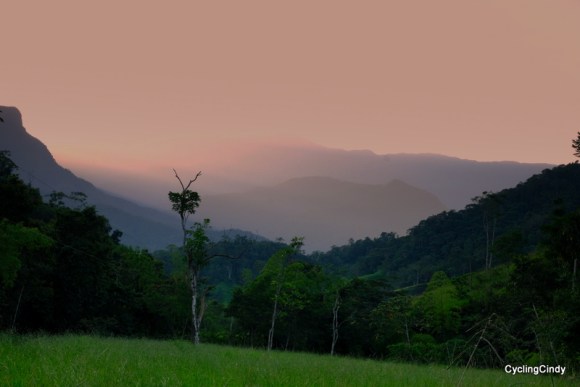
Piuntza still has that innocence. The cities not. Loja has advertisements for beauty. Not an ad for the correct brand of lipstick but the brand for the correct filler. A young model poses for the correct brand of plastic surgery, or, in other words, mutilation. Yet, the sort of facial mutilation I’d seen in Sudan I found interestingly beautiful, because it seems cultural correct. That is the two measured tool I balance with. Not fair. South Americans who can afford it, nowadays, will inject fillers. That is the culture being dealt with in 2020.

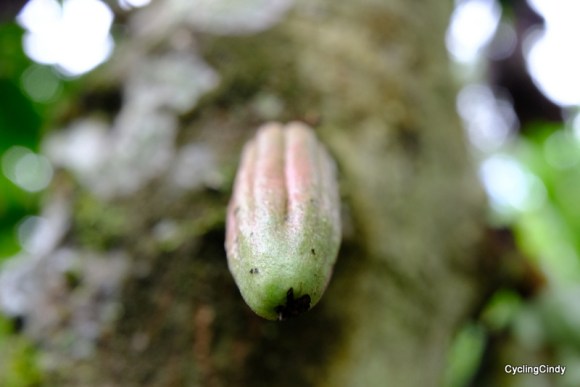

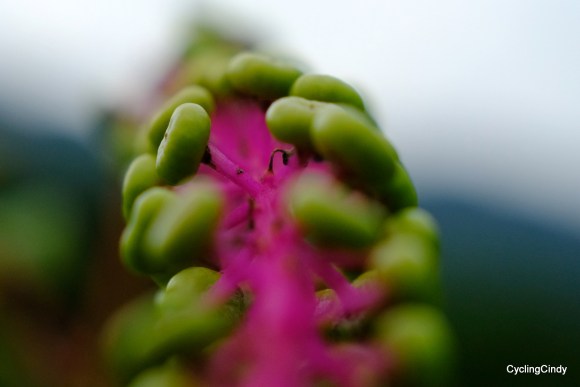
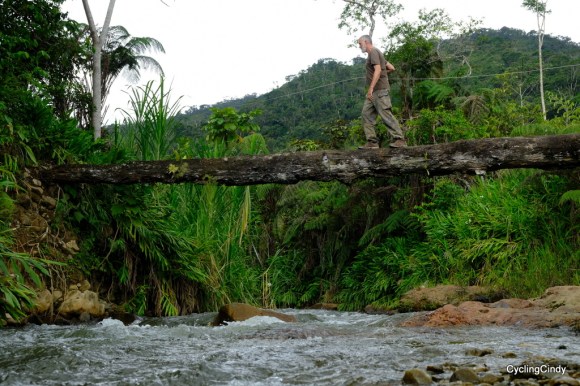
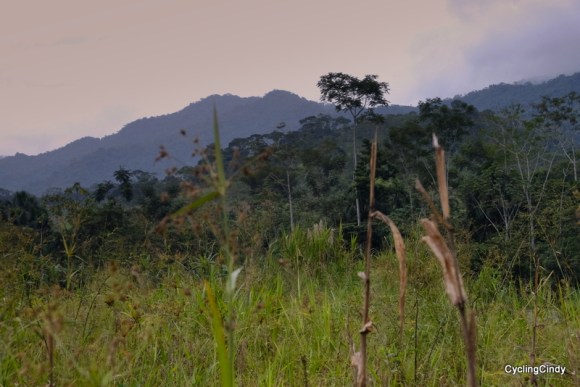
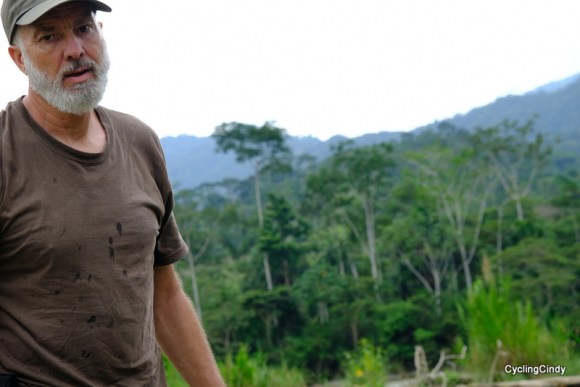

Geo portrays it beautifully for me: ‘The hat our neighbor is wearing is authentic to you. But it wasn’t for the elder generation in her younger years. When she decided to wear such a bowler hat, it must have been odd too. Such hats were not authentic before, since they were made in places outside their village, more modern places with advanced tools.’
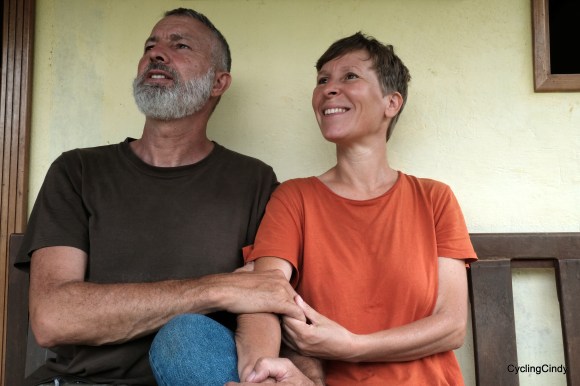


And ever so sporaradic, things are not what they seem like…

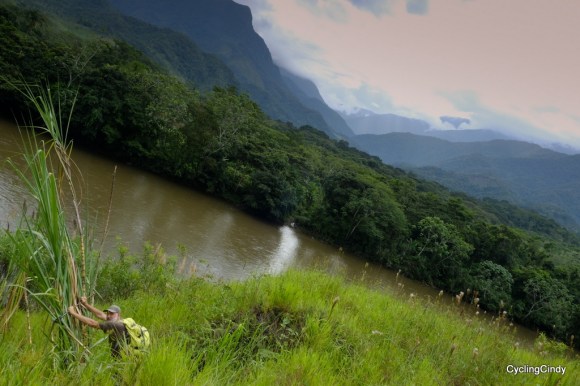
January/February 2020. Loja, Zamora, Piuntza.
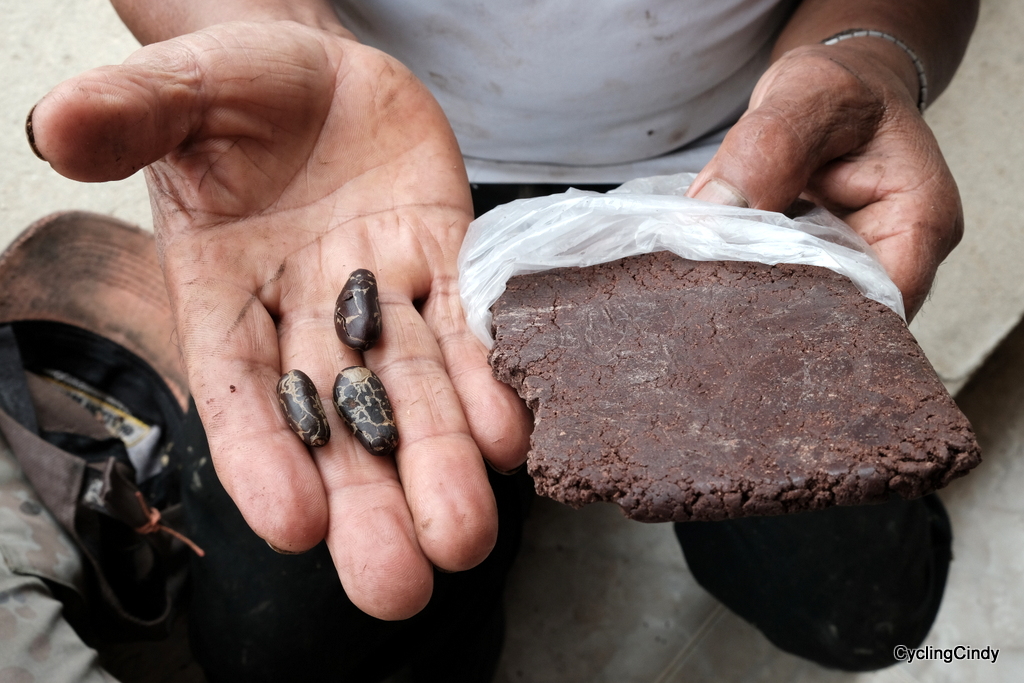
13 replies on “Piuntza”
[…] 2: Piuntza Loja, […]
LikeLike
Thanks so much Cindy , I didnt think your writing could improove but it has so much. keep up the good work!
LikeLiked by 1 person
Dear Oliver, did you see the sentence I wrote on my weblog, its one from you! You said this somewhere in Ghana or perhaps somewhere else. I think Brendan was out of touch for a few days, perhaps way out, far ahead. We might have met up with him in Robertsport, Liberia, if I am correct? Anyway, its a line from you that I always remembered. Sometimes you had this clarity and you said it then out loud.
Much greetings Cindy
LikeLike
That’s it! you said ot so well “Subtle Living”. Not the dumbed down super insulated, just going through the motions but simple, present, attentive, mindful and aware living. Basics done very well.
LikeLiked by 1 person
Yes!! That’s it!! All that clatter gone and life stripped to the bare, essential. Which is only comfortable when chosen and not the only option.
Geo and I are after this right now. Not there yet, but searching.
I am pretty sure that you do that already.
Much greetings from Cindy
LikeLiked by 2 people
No I am not there really. Compared to a typical household yes sure but it is a struggle between working to bring in money to buy whatever has just worn out or broken etc…. even bikes need new chains and tyres. The problem with very simple living that I am finding is that you are very vulnerable if something breaks. I you have lots of money then you just buy a new item or pay for repairs but then you arent free as you have a job… I you are on very low income and you want simple living you are typically reliant on second hand shops which rarely have what you need when you need it. Like winter coat in winter. Typically they are all gone but there is plenty of summer stuff… so one must buy when it is available at a good price and not necessarily when it is needed. On top of this one needs to buy replacements to have on hand for when items break because it may be your only coat as an example. Relating that to bikes it would be prudent to have plenty of spares and even a spare bike in case yours is stolen. So it isn’t really a simple life then. Much simpler maybe but in my experience minimalist lifestyles are for those with jobs that can afford to pay full price should their one and only coat or bike need replacing. So yes I am after very simple living stripped to it’s s essentials but with timely acquired spares but more so subtle living. My grandfather is my hero. They lived a basic life, full of being in touch with nature, seasons etc. They had to because to run out of water for the garden would be a disaster and so on. But their home was very simple indeed but out the back they had many spares for everything. House repairs, furniture making, garden tools, bottling equipment. This was valuable gear needed to support their rural life and ensure that breakages weren’t ever catastrophic. I bet that guy with the airbnb has a spare stove, sheets pots and pans out the back so if something unexpected happens it isn’t a big deal for him. Happy travels to you both.
LikeLiked by 1 person
You know, simple living is a choice, one which can actually only be made when there is enough money to spend. Every other, who has not enough money, would love to have a less simpler life. Because simple is romantic when you can make that choice, not if you can not make the choice. So, someone like your grandfather, is a life which he probably HAD to live, it would have been his wish, perhaps, to have just a little bit more. But still, simple would be very well an option for someone who is so in touch with nature and environment, since your grandfather is working closely together with those.
The Airbnb guy, I am sure, is a city man, who has, compared to his rural family, more to spend. To rent his second house makes for a nice extra income. His dad is more of the old fashioned style, and does life a simple life, though he has a car.
Of course, what is simple?
But I do so agree, that a simple lifestyle is only possible when one is aware and has enough to resupply, or replace. We would never call a homeless the example of a simple lifestyle! The choice has to do with awareness, possibilities and richness. Except, the perma people, they do live very simple, choose to do so and do have very little income. We saw many perma farmers in Vilcabamba, most Americans I belief.
If simple living, while touring, means to be fully depended on ‘luck’ and invitings and hopes and dreams, well, I wonder how healthy that is in the long run?
How your grandfather did it, HAD to do it, that’s lost, in many places of the world.
LikeLiked by 1 person
Somewhere out there is a balance that works. No affluenza but reasonable, sensible simplicity. The less items you use the less they are likely to break but they more likely they are to wear out. I am sure it is an art form to live well this way.
LikeLiked by 1 person
I think so too, that it is an art to live with only that what you need. Often, nowadays, all products are made in China, even good American brands. And this has an effect on the lifetime, whereas in earlier times, one would buy 1 expensive item and used it for a lifetime. It could last several lifetimes.
Now, it seems we like to buy solely for the fun of it. Well, this subject again needs a study ; )
I think in general our stuff is too bad a quality. Commerce needs to be oiled, so products need to be less good. Especially in a society where more people are producing things not able to eat/consume.
It’s a circle where we are in. And only the affluent can afford to get out of it.
Have a good day, friend.
LikeLiked by 1 person
[…] detailed posts about our motorbike travel in Ecuador: Vilcabamba, Piuntza and the […]
LikeLike
[…] was with us when we rented a little cottage close to the Amazon in Ecuador. Boarding the plane with the pieces of fabric in carry-on luggage, the pouch arrived with me on our […]
LikeLike
Was ist einfach?
Ich habe Einfaches nur einmal erlebt, gesehen, gekostet? Wie hat es mir geschmeckt? Ich weiß es nicht?
Bulgarien, Rundreise. 2 Wochen. Mit dem Fahrrad. Weil ich nicht hinaus kam. Grenzen abgeriegelt. NATO-Operation im Mai 1999. Bomben trafen wilde Ländereien. Nicht mich. Nicht mein Zelt. Aber daneben. Ohne Rums. Radioaktiver Abfall statt Zünder, statt Sprengstoff. Sofia verweigerte den Krieg, mangels Geld, da ja die UdSSR sich auflöste. Kein sündig guter Wein mehr zu bekommen, stattdessen frisch enteuterte Ziehenmilch, frisch gezupfte Zwiebelhalme, eine Mitfahrt auf dem Fontsitz eines halbierten Pkws, Deichsel nach Maultier statt Lenkung u Motor. Das Einfache fuhr einfach mir vor: Leiterwagen hinter Maultier, fast schwarze Menschen lachend und redend. Zeichensprache, Gebärden, Mimik, das sprach mehr als fragend, ob ich ihnen meine kurze Hose schenken täte. Unbeachtet, dass mir nur die Unterhose bliebe. Sie hatten nur das, was sie am Körper trugen, kein Gepäck, keine Koffer, keine Tasche Das, was wir Zigeuner einst nannten, als ich noch Kind war. Mit Geschnatter zuckelten wir ohne Geschäft, ohne Geschenk unserer Wege. Nebenan exerzierte ein Tross Soldaten in einer abgewrackten Kaserne.
LikeLike
Hello Ko.Jo.Te,
I notice you replied extensively but my German is not that advanced (though I am married to a German) so I am sorry but I have troubles understanding your replies.
Regards Cindy
LikeLike